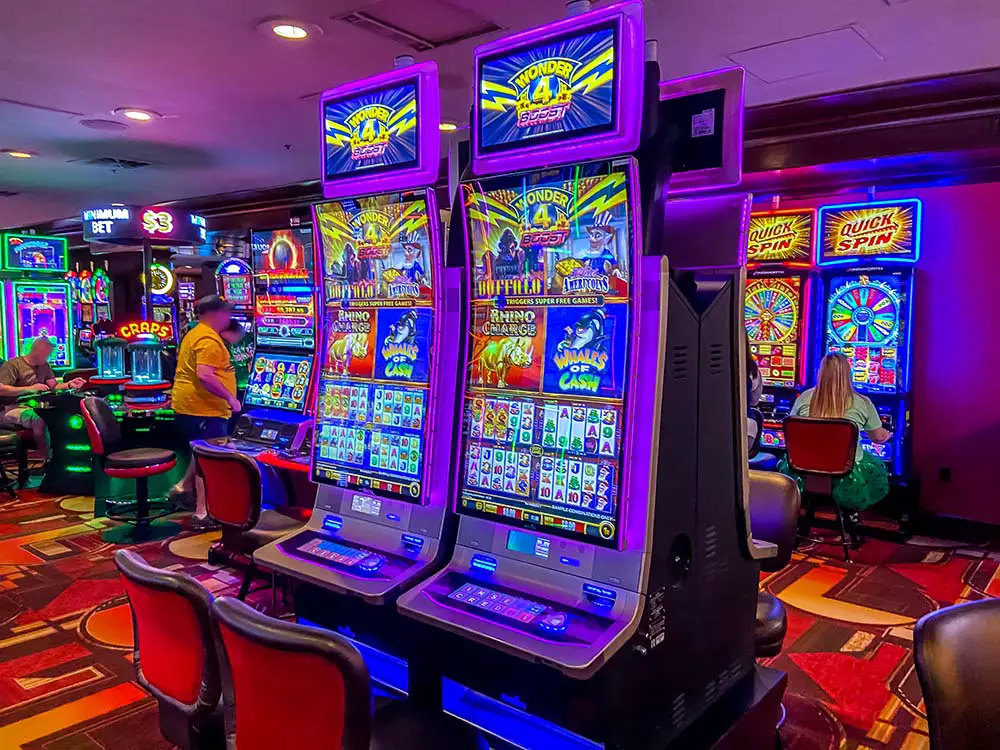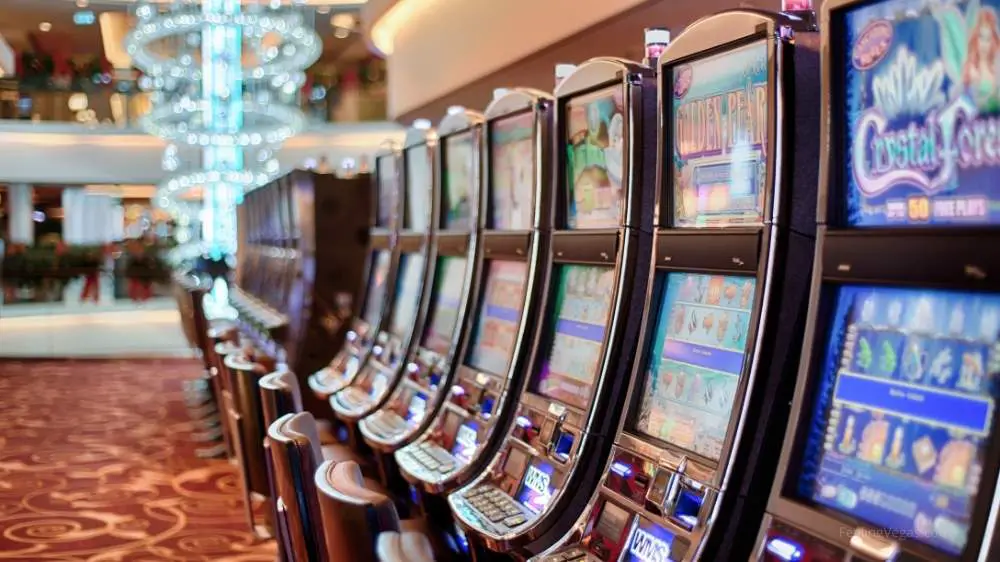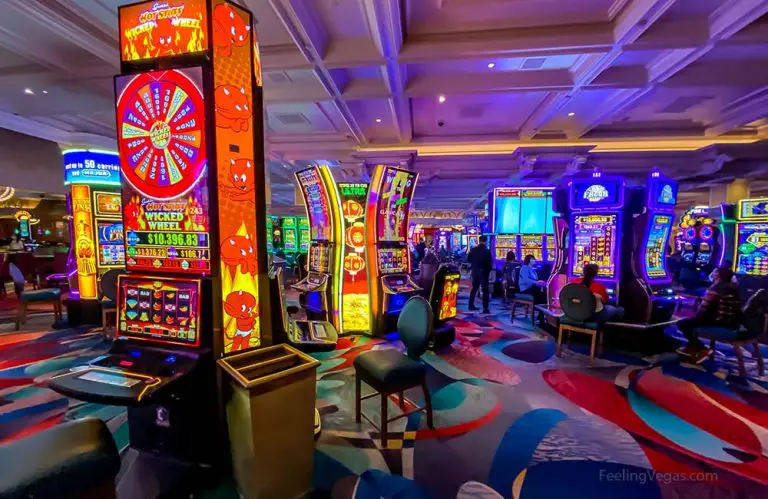How Much Money The Average Person Loses in Vegas (Wow!)
Are you planning a trip to Las Vegas and worried about budgeting for how much money you may lose in the casino? Then it might be helpful to know how much the average person loses during a trip to Vegas.
The amount the average person loses in Vegas is about $500 per trip to Sin City. The key to a successful Vegas trip is to budget accordingly and avoid common pitfalls, like playing a game too long or playing at the wrong casinos.
This article will outline how much the average person loses in Vegas while gambling and how to avoid the most common pitfalls, as well as how to budget for your expected losses while still having a great time.

How Much Does the Average Person Lose in Vegas?
According to a discussion on Trip Advisor, the average traveler visiting Vegas spends $150 per day on gambling, spends 3-4 days in Vegas, and spends 4-8 hours per day in a casino. This indicates that the average visitor to Vegas loses around $500 in gambling during their trip.
Most People Lose Money In Vegas Due To These 3 Mistakes
1. Playing the Slot Machines Is Often a Losing Proposition
Slot machines are the most popular of all casino games due to the low ante and next-to-no skill required to play. However, these deceptively simple games have alarmingly low odds of winning and can be a huge contributor to how much the average person loses in Vegas.
A computer software called a random number generator (RNG) determines the outcome of a slot machine spin. It can be programmed to assign a 1/10 probability to one symbol, a 1/20 probability to another, and 1/8 probabilities to all other symbols. Alternatively, you could have a whole other set of possibilities.
Slot Machines and the House Edge
You can even have two slot machines with identical symbols and themes, but with completely different odds. In other words, the machines may appear identical on the surface, but one may have a 5% house edge while the other has a 25% house edge (but most slot machines DO NOT have a house edge this high).
Furthermore, at 600 bets each hour, no other casino game is as fast as the slot machine. As previously stated, the faster you play, the more money you lose, therefore avoid slot machines as much as possible if you value your money.
2. Playing ANY Casino Game Too Long is Likely to Lose You Money
Math is a global language that is usually trustworthy. Every time you play a casino game, there is a statistical probability that you will lose. While the house advantage varies each game, it ultimately ensures that the casino does not lose money to players over time.
People do win (and sometimes they win big), therefore the house advantage isn’t impenetrable.
However, the longer you play, the more the math works against you, and the more likely you are to leave the casino with less money in your wallet than when you first entered. Keep in mind that the casino’s odds are set against you in each game.
3. Gambling At The Casinos on The Strip
Casinos on the Las Vegas strip may be glitzy and glamorous, but they are generally more expensive than casinos off the strip. Off-strip casinos frequently have reduced table minimums.
But, more crucially, all off-stip casino games have a reduced house edge. If you plan on gambling a lot, you’ll have a better chance of winning if you go to an off-strip casino.

How to Plan for a Potential Loss in Vegas and Still Have Fun
No one wants to acknowledge it, yet we all lose money when we gamble. When making a gaming budget, it’s critical to plan ahead of time where you want to stop losing.
Easy Vegas includes a handy average loss calculator to help you find out, statistically, how much you’re likely to lose playing the most popular casino games.
Consider the reasonable loss to be the amount you’re willing to pay for a night’s entertainment. Consider how much it costs to attend a live sporting event at a stadium. For instance, you can watch the Green Bay Packers play football for around $125 per seat. Throw in some drinks, food, and parking, and you’ve got yourself a $150 sports date.
In that scenario, you lost money but you had a good time.
Gaming in Las Vegas can be viewed the same way. You may lose money, but if you had hours of enjoyment doing it, you could consider it payment for being entertained.
If you’re not careful, however, a trip to a Vegas casino might cost you twice as much, or more. That being said, you could also win on occasion and leave the casino with more money than you had when you went in. That’s not a likely outcome when paying for other forms of entertainment.
The most essential question is how much money are you willing to spend being entertained?
5 Steps For Budgeting Your Average Loses in Vegas
When calculating your budget for gambling in Las Vegas, it is important to view your time in the casino as entertainment. Consider how much you would typically pay for a day of entertainment and this can give you an idea of what you would view as a reasonable loss.
Below are the steps for budgeting an average person loses in Vegas.
1. Assume you will spend 4-8 hours in the casino.
Most people spend between 4 and 8 hours in casinos when they go, but you know your habits, so adjust accordingly. Consider this example. Let’s say $250 is your threshold for a reasonable loss. This works outs to about $40 per hour or $0.50 per minute. You can then assess if you want to pay that much for your entertainment.
2. Before estimating your acceptable losses, subtract your food and other expenses.
When planning a day at the casino, don’t forget to account for food and drinks that you will be consuming while you are there. For example, if your acceptable loss is $100, subtract about $20 for food and drinks, and your threshold would be $80.
This way you won’t be stuck hangry if you lose all your money.
RELATED: Are Drinks Free in Las Vegas Casinos? (Yes! If You Know How)
3. Calculate your hourly bets.
When visiting a casino in Las Vegas, it is safe to expect that you will lose more money than you will win. The number of bets you can place every hour is largely determined by the games you enjoy playing and how crowded the casino is.
In general, you could play 75 hands of blackjack or 45 spins at a roulette table in an hour, whereas you could place up to 600 bets on a slot machine in the same amount of time.
As mentioned above, you have a greater chance of taking home money on slower-paced games.
4. If you’re losing more quickly than you intended, take a break.
Always keep an eye on the clock. If you don’t know how much time has passed while playing a game, budgeting is useless. Whatever casino game you choose to play, the longer you play, the more money you will lose due to the mathematical law of averages.
Take a break if you find yourself losing faster than you anticipated. It’s possible that a minor interruption is all you need.
5. If you’re ahead take your winnings off the table.
But what if you’re winning? Your best course of action for budgeting your money is to remove any gambling winnings from further play. Place your winnings in an “untouchable” pocket and pretend they don’t exist. You can continue playing with the amount you originally budgeted for the outing.
The other way to make sure your budget doesn’t take a hit over the long run is to just stop playing. If you’ve won a significant amount of money, just walk away with your winnings. Continuing to play increases the odds of you giving that money back to the Las Vegas casino.
In other words, don’t bet your winnings.
Summary
The average person loses $500 per trip to Vegas on gambling losses. While it is almost always in your best financial interest to not even walk into the casino, gambling can be great entertainment when done responsibly.
Budget for your potential losses and quit while you’re ahead. Good luck!
More From FeelingVegas
- How to Bring and Carry Money in Las Vegas (Explained)
- How Often Do Casinos in Vegas Change The Cards? (Revealed)
- Are Las Vegas Casinos Rigged? What You Need to Know
- Do Las Vegas Casinos Take Debit or Credit Cards? Find Out!
Note: Gaming can be a lot of fun but if you’re concerned that you may have a problem gambling, please reach out to the National Council on Problem Gambling (NCPG).






